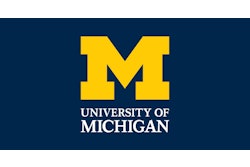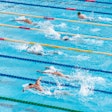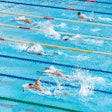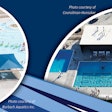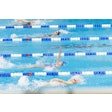A swim club dodges a slip-fall lawsuit because of its good works.
A defense against negligence that has been mostly relegated to the legal trash bin is the theory of charitable immunity. Based on the same principle as sovereign or governmental immunity, charitable immunity was developed to provide charitable institutions with protection against legal liability, the underlying theory being that it would be unfair to penalize charities (and the communities they serve) because of the beneficial work charities do in society. From a legal standpoint, the courts were also hesitant to impose liability on charities since doing so would divert funds to purposes outside donors' intent.
However, a fundamental shift occurred during the second half of the 20th century in how the courts and state legislatures began to view charitable immunity. The rationale behind this shift was twofold: First, affordable liability insurance was once widely available; and second, the courts began to believe that it was fairer for a charitable entity (or for society at large) to bear the cost of a person's injury, rather than have the injured person suffer the full burden, both financially and physically. As a result, the vast majority of states have either abolished or substantially limited the scope of charitable immunity.
While greatly diminished in importance, it is still necessary for athletic administrators and organizations to understand that the doctrine of charitable immunity is still a valid defense against negligence in the small number of states where the immunity is still on the books.
Auerbach v. Jersey Wahoos Swim Club [368 N.J. Super. 403; 846 A.2d 646 (2004)] was filed after Steven Auerbach finished a swim and slipped and fell in a stairway on the way to the men's locker room at the Jersey Wahoos Swim Club in Mt. Laurel, N.J. As a result of his injuries, Auerbach sued the club, claiming that it was negligent in failing to provide a safe environment. The club, however, asserted that it was immune from liability under the New Jersey Charitable Immunity Act.
In rejecting the club's claim, the trial court ruled that the club was not organized exclusively for educational purposes and that it received little revenue from contributions, gifts, grants or donations. In particular, the judge noted that "under the facts of this case, at best, Jersey Wahoos is a nonprofit organization organized partially . for educational purposes and partially as . a limited gym where people can go and lift weights and swim and do whatever else is available there for them to do." Since the club operated almost entirely on member dues, the court ruled there was no need to protect whatever funds were contributed through the generosity of donators to the club.
Having lost at the trial-court level, the swim club next asked the Superior Court of New Jersey to reexamine the issue of charitable immunity. The Superior Court began its analysis by reviewing the language of the statute, which provides, in relevant part: No nonprofit corporation, society or association organized exclusively for religious, charitable or educational purposes . shall, except as is hereinafter set forth, be liable to respond in damages to any person who shall suffer damage from the negligence of any agent or servant of such corporation, society or association, where such person is a beneficiary, to whatever degree, of the works of such nonprofit corporation, society or association; provided, however, that such immunity shall not extend to any person who shall suffer damage from the negligence of such corporation, society, or association or of its agents or servants where such person is one unconcerned in and unrelated to and outside of the benefactions of such corporation, society or association. [N.J.S.A. 2A:53A-7(a)]
The court, therefore, held that in order for an organization to claim immunity under the Act, the organization or entity would have to establish that it: 1) was formed for nonprofit purposes; 2) was organized exclusively for religious, charitable or educational purposes; and 3) was promoting such objectives and purposes at the time of the injury to the plaintiff, who was then a beneficiary of the charitable works.
In its analysis, the court found that the Jersey Wahoos Swim Club met this three-prong test. In the first case, the court held that it was undisputed that the swim club was a nonprofit corporation organized to train swimmers at various competitive levels. In support of this finding, the court pointed to the fact that the swim club was incorporated under the New Jersey Nonprofit Corporation Act for the specific purpose of teaching and promoting amateur swimming, diving and other water sports, for the benefit of the club's members and guests.
In addition, the court found that since its inception, the swim club had "attempted to provide a comprehensive program of training for all levels of competition," and that in its brochure, the club states that it was formed to "keep a competitive swimming program in the area." Therefore, the court ruled it was clear that the club's "primary exempt purpose" is to "promote and teach swimming."
As for the second prong, the court held that if entities could prove they are organized exclusively for educational or religious purposes, they would automatically satisfy this prong, and no further financial analysis would be required. The court then found that the trial court's focus on the club's lack of funding from contributions, gifts, grants and donations, while perhaps relevant to the issue of charitable purpose, was of less relevance to organizations such as a swim club organized for educational purposes.
Regarding whether the club was organized exclusively for educational purposes, the court held that a nonprofit corporation could be organized exclusively for educational purposes even if it provides an educational experience that is recreational in nature. Such a liberal reading is consistent with the statute, which mandates that the Charitable Immunity Act be liberally construed. Therefore, the court held that the swim club's goal of teaching its members swimming and aquatic skills was sufficient to satisfy the educational component of the second prong of the Act.
The final prong of the test required the court to examine whether the swim club was promoting the objectives and purposes for which it was established at the time of the injury, and whether Auerbach was a beneficiary of the club's charitable works. Auerbach argued that as a general member of the club, he was not a beneficiary of the club's charitable work.
In rejecting Auerbach's claim, the court held that for Auerbach to be a beneficiary, the club only needed to show that at the time of the injury it was engaged in the performance of the charitable objectives it was organized to advance. Even though the swim club was not actually teaching at the time of the injury, since the club was maintaining its water activity and swimming operation, the club was engaged in the performance of its charitable objectives.
In addition, the court held, since Auerbach was utilizing the swimming pool at the time of his injury, he was a beneficiary of the club's charitable works. In support of this finding, the court held that it was not important that Auerbach personally received a benefit or understood the entity's goals. It was only important that the charitable activities were going on -- which the court held they were.
The court also went on to say that it did not matter whether Auerbach was a dues-paying member; immunity, the court ruled, is not lost simply because the entity charges money for its services. Immunity is only lost if the organization makes a profit or collects fees for services totally unrelated to its organizational pursuits.
Only a handful of states -- Arkansas, Maine and Maryland, in addition to New Jersey -- allow a defense of charitable immunity. Charitable organizations in some other states, however, have another defense they can use to shield themselves and their employees from liability. Beginning about 20 years ago, as a result of the high cost of insurance and the fear that potential legal exposure might reduce the number of people willing to volunteer for charitable and nonprofit organizations, a number of states and the federal government began to enact volunteer-protection statutes. As a result of these statutes, individuals who volunteer their time as coaches or athletic administrators are immune from liability -- unless they are found to be guilty of willful misconduct or operating in bad faith, or if their conduct falls outside the scope of the organization's charitable duties.




















